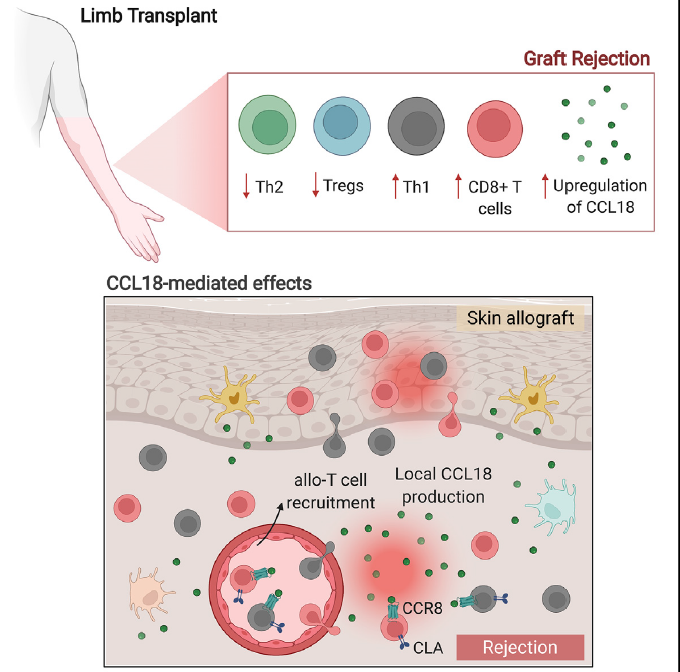Cell Rep Med. 2022 Mar 15;3(3):100559.
Authors:
Borges TJ, Abarzua P, Gassen RB, Kollar B, Lima-Filho M, Aoyama BT, Gluhova D, Clark RA, Islam SA, Pomahac B, Murphy GF, Lian CG, Talbot SG, Riella LV
Abstract:
Limb transplantation is a life-changing procedure for amputees. However, limb recipients have a 6-fold greater rejection rate than solid organ transplant recipients, related in part to greater immunogenicity of the skin. Here, we report a detailed immunological and molecular characterization of individuals who underwent bilateral limb transplantation at our institution. Circulating Th17 cells are increased in limb transplant recipients over time. Molecular characterization of 770 genes in skin biopsies reveals upregulation of T cell effector immune molecules and chemokines, particularly CCL18. Skin antigen-presenting cells primarily express the chemokine CCL18, which binds to the CCR8 receptor. CCL18 treatment recruits more allo-T cells to the skin xenograft in a humanized skin transplantation model, leading to signs of accelerated graft rejection. Blockade of CCR8 remarkedly decreases CCL18-induced allo-T cell infiltration. Our results suggest that targeting the CCL18:CCR8 pathway could be a promising immunosuppressive approach in transplantation.
Download the PDF here:
LVR_CCL18 dominant role in limb transplantation Cell Reports 2022

